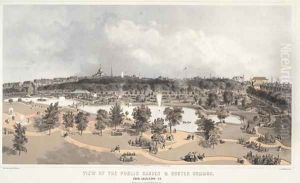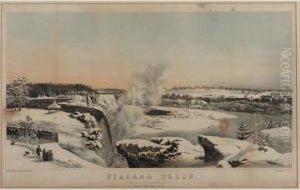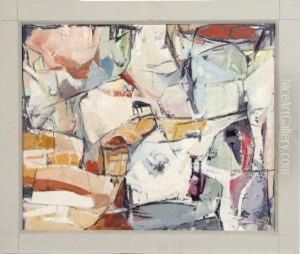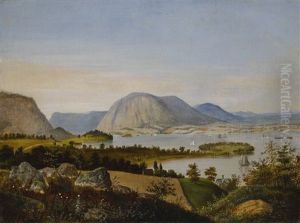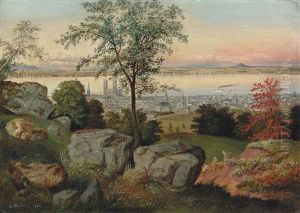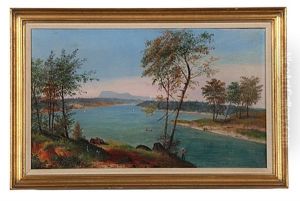Whitefield, Edwin Paintings
Edwin Whitefield was a British-American landscape artist, lithographer, and real estate developer known for his highly detailed landscapes and city views, particularly in the United States and Canada during the 19th century. Born in East Lulworth, Dorset, England, in 1816, Whitefield moved to the United States in the 1830s, where he embarked on a career that would see him travel extensively across North America, capturing the burgeoning cities and picturesque landscapes of the continent.
Whitefield's work is characterized by its meticulous attention to detail and its focus on accuracy. He was part of a tradition of itinerant artists who traveled from town to town, offering their services to create images of homes, farms, and local landmarks. These images were often commissioned by wealthy patrons who wanted a visual record of their properties. Whitefield's lithographs and paintings served not only as keepsakes for these patrons but also as documentation of the changing American landscape during a period of rapid growth and development.
Over the course of his career, Whitefield produced a significant number of views of both American and Canadian cities, including a notable series on the towns of the Mississippi River and another on the maritime provinces of Canada. His work provides valuable historical insight into the 19th-century North American environment and is often used by historians and preservationists to understand the architectural and urban history of the period.
Whitefield's contributions to the field of landscape art were recognized in his time, and today, his works are considered important pieces of historical documentation, valued both for their artistic merit and for the wealth of information they provide about the landscapes and cityscapes of the past. He continued to work until his death in 1892, leaving behind a legacy of detailed visual records of an era that would soon be transformed by modernity and industrialization.
